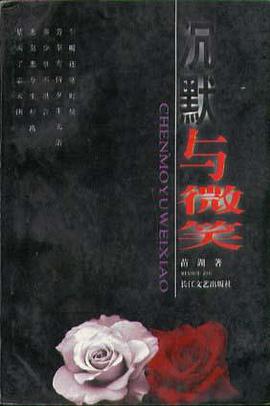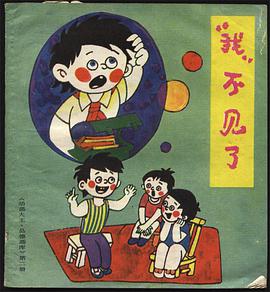
具体描述
First published in the Soviet 1920s, Zamyatin's dystopic novel left an indelible watermark on 20th-century culture, from Orwell's 1984 to Terry Gilliam's movie Brazil. Randall's exciting new translation strips away the Cold War connotations and makes us conscious of Zamyatin's other influences, from Dostoyevski to German expressionism. D-503 is a loyal "cipher" of the totalitarian One State, literally walled in by glass; he is a mathematician happily building the world's first rocket, but his life is changed by meeting I-330, a woman with "sharp teeth" who keeps emerging out of a sudden vampirish dusk to smile wickedly on the poor narrator and drive him wild with desire. (When she first forces him to drink alcohol, the mind leaps to Marlene Dietrich in The Blue Angel.) In becoming a slave to love, D-503 becomes, briefly, a free man. In Randall's hands, Zamyatin's modernist idiom crackles ("I only remember his fingers: they flew out of his sleeve, like bundles of beams"), though the novel sometimes seems prophetic of the onset of Stalinism, particularly in the bleak ending. Modern Library's reintroduction of Zamyatin's novel is a literary event sure to bring this neglected classic to the attention of a new readership.
作者简介
Yevgeny Ivanovich Zamyatin[1] (Russian: Евге́ний Ива́нович Замя́тин, 20 January (Julian) / 1 February (Gregorian), 1884 – 10 March 1937), sometimes anglicized as Eugene Zamyatin, was a Russian author of science fiction and political satire. He is most famous for his 1921 novel We, a story set in a dystopian future police state. Despite having been a prominent Old Bolshevik, Zamyatin was deeply disturbed by the policies pursued by the CPSU following the October Revolution. In 1921, We became the first work banned by the Soviet censorship board. Ultimately, Zamyatin arranged for We to be smuggled to the West for publication. The subsequent outrage this sparked within the Party and the Union of Soviet Writers led directly to Zamyatin's successful request for exile from his homeland. Due to his use of literature to criticize Soviet society, Zamyatin has been referred to as one of the first Soviet dissidents.
目录信息
读后感
看完书,最能让我反对乌托邦的原因只有一个——乌托邦里没有爱情。 “多么洁白尖利的小牙齿啊!”他第一次见她时就感叹道。 “我又有点不知所措,不由得左看看,又右看看”他对面前的她感到迷惑,像“X”一样未知而“不清楚” “这女人使我不安” “令人难以忍受的甜唇” “因...
评分大多数人都因为《1984》而知道反乌托邦三部曲,从而找到这所谓的三部曲中的第一部《我们》。一反常态,此处的第一,并未给《我们》和扎米亚金获增辉,相比《美丽新世界》,《我们》的评价偏低,更不能和《1984》相比。 扎米亚金,这个青年时积极参加俄国十月革命,曾...
评分在书店收入《我们》,绝对是因为其与《一九八四》和《美丽新世界》一起被称为三大“反乌托邦”小说,断断续续,用了两周时间,也只是粗率得看了一遍,远不像最初看《一九八四》,让我在除夕和年初一中用了两天就看完。 也许是我对第一人称的叙述方式不太习惯,或者是因为之前看...
评分我们是谁?是26世纪大一统王国的号码们,我们以失去自由的代价获得幸福。我们在大恩主的领导下,过着理性划一的生活,我们是人类的终极梦想。 是一部预言式的小说,其中关于人类的乌托邦?毋宁看作是一部反观现实的书更适合些。 如同叙述者“我”,号码D503担心的那样,写给前...
评分用户评价
从纯粹的叙事结构来看,这本书像是一个精密的机械装置,每一个齿轮——每一个章节、每一个意象——都紧密咬合,相互驱动。我尤其关注到作者在重复使用特定符号和意象时的精妙之处。比如“水滴”和“镜面”,它们在不同的情境下被赋予了截然不同的含义,时而是纯净的象征,时而又暗示着腐蚀与幻象。这种符号的弹性变化,极大地丰富了文本的解读层次。它不是一本“一看就懂”的小说,更像是一张复杂的星图,初看之下满目繁星,不知所云,但随着你不断地追踪那些既定的轨迹,你会开始理解那些星辰之间的引力关系。这本书的魅力在于其内在的逻辑自洽性,即使它的世界观设定非常怪诞,但当你接受了它的开场前提,后续的一切发展都显得合乎情理,甚至令人信服。它需要的不仅仅是阅读,更需要沉思和反复咀嚼,它是一部值得被纳入书架深处,时不时拿出来重新品味的“内省之书”。
评分我很少遇到如此坦诚而又疏离的作品。它的“疏离感”体现在作者与故事之间,仿佛他只是一个冷静的观察者,记录下那些正在发生、却又似乎与他本人无关的事件。然而,在这冷静的笔触之下,却涌动着一种近乎原始的、对人类困境的深刻同情。书中对于“连接”与“隔绝”的探讨,是贯穿始终的核心议题。那些角色们似乎都在拼命地试图触碰彼此,但总有一层无形的、坚硬的屏障存在。比如,有几段关于通信失败的描写,那种电话那头的静默、或者信件被遗忘在角落的画面,被刻画得入木三分,让人感到一阵阵心绞痛。它不是那种煽情的哭哭啼啼,而是一种更高级的、存在主义层面的孤独。我被书中对于“寻找”这个动作本身的重视所吸引,角色们似乎永远在寻找某样东西——一个答案、一个人、或者只是一个合适的落脚点——但这种寻找的过程本身,似乎比找到目标更为重要。这本书逼迫你去面对自己内心深处对归属感的渴望。
评分这本书的语言风格,简直是教科书级别的“克制美学”展现。作者用词极其精准,几乎没有一个多余的形容词,每一个动词的选择都像是经过了千锤百炼,带着强烈的目的性。读起来,节奏感非常强,有时像急促的鼓点,有时又像是远方传来的低沉的钟声。我特别欣赏作者在构建世界观时所采用的“留白”策略。他不会用大段的篇幅去解释这个世界的规则或者历史背景,而是将一些关键信息像碎片一样散落在对话和动作中。这要求读者必须保持极高的专注度,去拼凑出那个宏大的、虽然晦暗但令人信服的背景。这种叙事方式,对于习惯了被“喂饱”的现代读者来说,无疑是一种挑战,但一旦你适应了这种呼吸的频率,你会发现自己进入了一个更广阔、更深邃的精神领域。它让人想起那些老派的欧洲文学,那种对人性的剖析入骨三分,却又绝不轻易下结论的优雅姿态。
评分读罢全书,我得说,这简直就是一场对时间感官的彻底颠覆。我常常发现自己在一个段落里耗费了远超预期的精力,不是因为文字有多么晦涩难懂,而是因为作者似乎在故意拉伸或压缩叙事的时间轴。前一秒还在描述一个漫长的等待,后一秒,可能就跳跃到了数十年后的一个模糊的场景。这种跳跃性让读者在阅读时始终保持着一种警觉,生怕错过任何一个细微的线索。书中对“记忆”的描绘尤其令人印象深刻,它不是一个清晰的录像带,而更像是一堆被反复修改、甚至自我矛盾的文档。作者通过对不同叙述者声音的切换,完美地展示了同一个事件在不同心境下的面目全非。这种多视角的交织,使得真相变得如同棱镜折射出的光芒一样复杂多变,你永远不知道哪个视角才是“真实的”。我喜欢这种毫不妥协的复杂性,它拒绝喂养那些习惯于被端到面前的简单故事的读者。这本书更像是一场智力上的攀登,每当你觉得快要到达顶峰时,一个巧妙的转折又会将你带回山脚下的迷雾中。
评分这本书,说实话,初次翻开时,我心里是有些忐忑的。封面设计极简,名字更是只有一个字母,这在如今这个信息爆炸的时代,着实算得上一种挑衅。然而,一旦沉浸进去,那种感觉就像是掉入了一个精心编织的迷宫,每走一步,都带着对未知的好奇和一丝丝被引导的敬畏。作者的叙事手法极其破碎,不是那种传统意义上的线性故事,更像是一系列散落的碎片,需要读者自己去打磨、去拼接,才能勉强看到全貌。我尤其欣赏他对环境氛围的刻画,那种潮湿、压抑,又时不时被突如其来的微光照亮的场景感,简直能让人产生幻觉,仿佛真的能闻到空气中泥土和旧书本混合的味道。那些人物的对话,也处理得非常微妙,很多时候,真正重要的信息都藏在那些没有说出口的停顿和重复的词语之间,需要你反复回味,才能品出其中深层的意蕴。这本书对“存在”这个主题的探讨,是极其深刻且毫不留情的,它不断地挑战着我们对自我认知的边界,让你在读完一个章节后,不得不停下来,审视一下自己站在何处。这种阅读体验是费力的,但其带来的精神上的回响却是持久而有力的,它不是提供答案,而是提出更令人不安的问题。
评分结尾出乎意料,看完后不免有些唏嘘。这本书是俄罗斯作家扎米亚金在1921年写成的,也算是反乌托邦作品的鼻祖了。乔治奥威尔的《1984》肯定是受到了这本书的启发,里面有不少其中的影子。书的情节松垮,但意义重大。对毫无感性的人类生活的描写,让人不寒而栗。周同学用catharsis来形容读后感,很有感,谢谢你带来这本好书。
评分结尾出乎意料,看完后不免有些唏嘘。这本书是俄罗斯作家扎米亚金在1921年写成的,也算是反乌托邦作品的鼻祖了。乔治奥威尔的《1984》肯定是受到了这本书的启发,里面有不少其中的影子。书的情节松垮,但意义重大。对毫无感性的人类生活的描写,让人不寒而栗。周同学用catharsis来形容读后感,很有感,谢谢你带来这本好书。
评分rationality与human nature的对抗
评分结尾出乎意料,看完后不免有些唏嘘。这本书是俄罗斯作家扎米亚金在1921年写成的,也算是反乌托邦作品的鼻祖了。乔治奥威尔的《1984》肯定是受到了这本书的启发,里面有不少其中的影子。书的情节松垮,但意义重大。对毫无感性的人类生活的描写,让人不寒而栗。周同学用catharsis来形容读后感,很有感,谢谢你带来这本好书。
评分结尾出乎意料,看完后不免有些唏嘘。这本书是俄罗斯作家扎米亚金在1921年写成的,也算是反乌托邦作品的鼻祖了。乔治奥威尔的《1984》肯定是受到了这本书的启发,里面有不少其中的影子。书的情节松垮,但意义重大。对毫无感性的人类生活的描写,让人不寒而栗。周同学用catharsis来形容读后感,很有感,谢谢你带来这本好书。
相关图书
本站所有内容均为互联网搜索引擎提供的公开搜索信息,本站不存储任何数据与内容,任何内容与数据均与本站无关,如有需要请联系相关搜索引擎包括但不限于百度,google,bing,sogou 等
© 2026 qciss.net All Rights Reserved. 小哈图书下载中心 版权所有





















